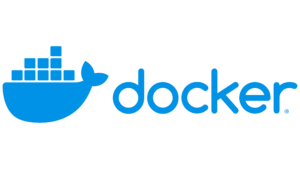mintCast 309 – Virtualization (mp3)
Introduction:
- This is Leo, Joe, Josh, Tony Watts, Tony Hughes and Moss!
- First up, in our Wanderings, I get some new gear and upgrade kernels, Tony Hughes is back home and LUGging again, Moss gets a new printer and some recording gear, Josh is jetsetting to France next week, Joe’s gaming more and heading to Texas Linux Fest on the 31st of this month, and Tony Watts is looking for a cheap server and trying RetroPie ports.
- Then, in the news, we have lots of releases like RHEL 8, and plenty of vulnerabilities
- In our Innards section, we talk virtualization
- And finally, plenty of feedback and LOTS of check this out
- [0:00] Theme
- [1:03] Introduction
- [2:17] Bi-Weekly Wanderings
- [38:04] News
- [1:01:15] Innards
- [1:34:14] Vibrations
- [1:40:48] Check This Out!
- [1:50:27] Wrap Up & Thanks
Bi-Weekly Wanderings:
- Leo
- Got some new recording gear. MXL 990 and a Beringher UM-2. I’m still getting everything calibrated.
- I spent some time this last week getting the 3 Mint boxes I used upgraded to kernel 5.0.0. My laptop is the only one that really needed it for the battery improvements, but I figured I’d try out everything.
- Tony H
- I’ve returned home Woodbrooke Quaker Study Centre and getting back into day to day living.
- Still playing with Linux, at the LUG yesterday morning I installed Fedora 29 on a 10 year Old Dell 15” laptop that was one of our members Expensive Desktop replacement 10 years ago, Core 2 Duo with a whopping 4Gig of Ram 🙂 my install iso for mint 19.1 was corrupt and would not install so I used my Fedora 29 Matѐ spin and after installing a 128 Gig SSD the install went great. On reboot the laptop boots in 50 seconds from pressing the power button to it being connected to the internet and applications being available to use, which is not bad for a 10 year old machine.
- Installed Kernel 5.0.0.xx on my desktop Mint 19.1 install and broke the Nvidia driver, had to return to the open source driver.
- Moss
- As you know, it’s Printer Week. After a lot of advice, I got a Canon Pixma TS9210. And I could not get it installed. I made some headway, hit a brick wall, got some help, hit another brick wall, got more advice which didn’t help… so I called Amazon. What with the ink already installed, they told me to keep the printer and gave me a full refund, so I ordered a Brother MFC-J491DW. It is up and running on all 4 of my distros as well as my wife’s, easy peasy once you know how to do Brother installation (requires the use of a Terminal). I did get a LOT of people recommending HP printers, despite my pleas for them to not do so. Bottom line, be careful before you buy a new PIXMA, and Brother Is Best. (Boy, I wish I could get paid for all these sponsor-like comments!)
- I did get a new boom and pop filter to aid in my podcasting. It was quite inexpensive…and maybe a bit small and maybe not the best quality gooseneck but seems to be working. If you’re on a budget like I am, I would recommend this setup… got it on eBay, company is Neewer.
- I’ve been working on my review of Linux Lite 4.4 for Distrohoppers’ Digest Episode 2, to be recorded at the end of May. Next month: Clear Linux OS? Sabayon?
- I’ve only gotten 3 donations to date in the fundraiser to get me to SELF. This fundraiser was started by a listener, Jackie Moore, and I am very grateful that a few listeners understood my need and responded. Getting to SELF would help me promote mintCast and perhaps make some inroads into a career in computers. Only about $125 has been raised to date, including one donation through PayPal, and unless I get at least $500 I simply can’t go. But here’s a problem: GoFundMe disburses donations every week (if any), and it’s my job to manage the funds. There is no way to send refunds (especially to anonymous donors). So I had to decide what to do with the money if I don’t get enough to go. After much discussion with my wife and the mintCast team, any money not used (including if we have unused funds after going) will be sent as a donation from mintCast, divided between Linux Mint and Archive.org. I will make the decision to go or not on May 31, as that’s about the latest I could get good rates on hotel rooms for June 14-16.
- Josh
- Working on talk for a conference in france. I’ll be giving a talk on building an open source project. I’ll cover GitHub, Licensing, Publishing, Packaging, Community and Monetization (Patreon)
- Playing around with ByteMark hosting (thanks to them) and a wordpress server to migrate our website
- Working on a website redesign for mintcast
- Playing with the adafruit PyPortal, internet connected python display. Made a eurovision countdown timer.
- Photography setup
- Joe
- Helped someone at my lug with their install of VirtualBox on Fedora
- Tested out the xbox one controller on linux and it is working much better than before. But not as well as the 360 controller which has vibration working.
- After much searching for the connectors/cables needed for the Earforce z2 i discovered that the connector exactly matches the old ps2 connectors. So i spent a couple of dollars on female to female connectors so that they will match up with the other turtle beach 3.5mm connectors that i ordered. This will also allow me to get creative with the other connector that i have. Replace the 3 pin 3.5 for the mic or cut the cable short and put on a new 4 pin jack.
- Received the adapter and it works perfect. Mic and audio both.
- Did a lot of work with OBS and Icecast but have not got them to play well together yet. Can’t find the right settings to get to actually stream. I have gotten it to recognize the ‘mount’ for OBS and i can see it trying to load on the page but then nothing.
- Going to TLF Before the next show. Let me know if there is anything that i can find out for you to bring to the show.
- Tony W
- Listening to MintCast!
- Home repairs, music gig last weekend
- OnePlus repair SAGA –
- Switched to T Mobile
- Bought phone for the kid, Moto E5 Play for $80 [Swappa has the X4 for $115]
- Google Family Link is great – we need something like this in Librem or other non proprietary solution, someday
- Kindle Fire Launcher Hijack was blocked – got it working using one that was repackaged: https://forum.xda-developers.com/showpost.php?p=79434906&postcount=395
- Exploring options for a *very cheap* server
The News:
- RHEL 8 Released
- The headline feature is support and focus on containers after their acquisition of CoreOS
- Running kernel 4.18 and has Python 3 as the default version
- If your enterprise has money to burn, can support up to 4PB of RAM. Up from 64TB in RHEL 7.
- Ubuntu Touch OTA-9 Released
- This comes two months after the release of OTA-8
- Supported on devices like the Fairphone 2 and Nexus 5
- Little quality of life improvements like “Paste and Go”
- Kernel 5.1 Released with performance improvements
- Improvements in the Linux Security Model found in SELinux and Apparmor. A major feature here is the SafeSetID. It essentially prevents unprivileged users from giving themselves too much permission in the filesystem.
- Brings support for NVDIMM persistent memory, which is just a fancy way of saying using flash memory in addition or as a replacement to RAM. Think Intel Optane.
- Improvement in Live Patching
- OpenMandriva 4 RC released May 12, last step before stable
- Microsoft Announces WSL2
- Up to 20x faster than WSL1
- Uses a REAL LIVE 4.19 kernel
- Can be compiled on Windows from git if you’re excited to try it
- Tilix (terminal) needs a new project maintainer
- South Korea and the Indian State of Kerala Convert to Linux
- Kerala [also here Kerala] (Kerala is first Indian state with 100% literacy!)
- South Korea
- Zombieload Attack on Almost Every Intel Chip in Existence
- This vulnerability affects Intel processors. From first-gen Core i-series to the current 9000 series, only chips without hyper-threading are immune from.
- Like Meltdown, Spectre, Speculative Store Bypass, Foreshadow before it, Zombieload is a way for threads on a CPU to reach out a read data from other threads.
- This attack essentially allows the reading of encryption keys, history, etc.
- Red Hat’s 3 minute video explanation
- Vulnerabilities in Kernels up to 5.0.8
- A semi-dangerous vulnerability, but a bit complex to exploit. It clocks in with a exploitability score of 2.2. It results from a specially crafted TCP packet, and can lead to remote code execution!
- https://nvd.nist.gov/vuln/detail/CVE-2019-11815
- Whatsapp vulnerability allows hackers to infect phones
- Install the update now
- This happened when a malicious call came in to the app. Users didn’t even have to pick the call up to be compromised! So, even if you didn’t notice the missed call, it can infect your phone..
Linux Innards:
-
- Joe
- VirtualBox
- I don’t have as much experience with this as others
- Two ways to install
- Grab the deb from the virtualbox website
- Sudo apt install virtualbox-qt
- I do use the occasional VM but i prefer barebones or Docker
- I like the functionality of being able to run a VM off of a disk drive pulled from another machine
- I attempted this with my hanging Windows partition but it did not work because Virtualbox seems to have a problem with UEFI
- I have a 32gb msata drive and an adapter that i will be testing with
- I picked up a centos course from UDEMY and will be installing a VM of that
- Did install
- Was successful in getting one of the msata drives from the 7130 to work in a VM
- Sudo VBoxManage internalcommands createrawvmdk -filename “/root/VirtualBox VMs/linux/tablet.vmdk” -rawdisk /dev/sdb1
- Worked perfect
- Will need to run virtualbox as root in order to run a VM of a disk image.
- But that is boring so batocera got installed in a vm
- Didn’t work, efi
- The difference between installing the deb and installing from repo
- The repo updates and the deb is static.
- https://www.howtoforge.com/converting-a-vmware-image-to-a-physical-machine
- Use clonezilla cd, add to vm
- Add physical disk to vm
- Make sure boot order is cd first
- Clone image to physical drive
- fsck -y
- Go into /etc/udev/rules.d and delete the file 70-persistent-net.rules then reboot
- VirtualBox
- Leo
- I don’t have a lot of experience here on the desktop either. However I’ve run it quite often headless to run other headless servers.
- In the past, it was quite difficult to get all the packages gathered and installed without the use of tasksel. But while testing, there’s a quick way.
- sudo apt install gnome-boxes virt-manager
- virtual-manager is being deprecated in favor of the web interface Cockpit.
- The biggest reason to use KVM on the desktop is GPU passthrough. All other desktop host features are done simpler, or just plain better by other hypervisors. However, for headless VMs, there’s almost nothing better.
- AMD GPU passthrough
- Nvidia GPU passthrough
- Tony H
- As part of this dive into virtual computing I checked out Gnome Boxes, while this is a simpler way to boot qemu-kvm virtual PC’s I found issues with it not working properly with local .iso/.img files. However I did manage to download and install Debian 9 through the app and was surprised how well it worked with the allocated 1Gig of RAM. I also managed to download and install Ubuntu 18.10 which runs OK although I couldn’t access the terminal in the VM for some reason.
- Tony W – tried out Gnome Boxes as well
- Options to download RHEL, FEDORA, etc from Boxes is great
- Very simple menus
- Had to install in Ubuntu 19.04, wasn’t installed by default
- Joe
- Leo – Installed on Ubuntu 18.04 and it never allowed me to start a VM.
-
- Josh
- ESXI server
- VCloud Director
- Josh
- Leo – This is what I use instead of KVM now. But with Cockpit, I’m reconsidering that, too!
Vibrations from the Ether:
- KWisher requested that I post a picture of my hard drive, showing which distro is on which partitions. It is being removed from the show notes so as to not cause your podcaster apps to hiccup. But you can find it in the mintCast MeWe group, and also in the Distrohoppers’ Digest MeWe group. Leo is seeing to posting it to the Telegram group.
- Followup from Brad A.
Moz: I apologize if I wasn’t clear. Bitwarden runs as a plugin for whatever browser you run. You can access it simultaneously from any and all devices that are running the add-on. For example, I have the add-on on my personal laptop, my desktop, and my work laptop, and have been simultaneously logged in on all three devices. For non-web passwords, I use the keepassx/keepassxc app. The nice thing about that app is that it stores all of the information in an encrypted database, which you can share around to all of your devices.
Leo: Since your OpenMediaVault installation is on the fritz, can I suggest a FreeNAS installation? It is based on FreeBSD, but is effectively an appliance. And ZFS protects your data better than ext4 or even btrfs.
Joe: Feel free to ping me if you want more info on setting up encryption with /boot on a thumb drive. I have been doing this for many years on Debian.
- Suggestion from Highlander
Regardless of whether you are using windows or linux, everyone should
create offline backups of your most critical data.
Here’s why:
https://www.cnn.com/2019/05/10/politics/ransomware-attacks-us-cities/index.html
Fixed media might be your best choice for data you think is critical
or irreplaceable.
- Christopher P.
To add a podcast to Spotify all you have to do is add the rss feed Spotify podcast at https://podcasters.spotify.com/submit
Check This Out!
- Leo
- To use local time
- timedatectl set-local-rtc 1 –adjust-system-clock
- To revert the local time change
- timedatectl set-local-rtc 0 –adjust-system-clock
- Kat* from the community has some Arch love. https://arch-uefi-usb.github.io/
- Oliver from the mintCast Discord has been busy writing, streaming, chatting and everything else. Check out his Mint story
- To use local time
- Moss – More companies have bought into lvfs for firmware updates
- Distrohoppers’ Digest is up to 104 downloads!
- Josh
- Joe
- Ubuntu Podcast 12.04
- http://batocera-linux.xorhub.com/
- Basically retropie for x64
- Ubuntu Podcast 12.04
Announcements:
- Next episode on June 2nd, 2019
Wrap-Up:
- Livestream information is at mintcast.org/livestream
- We’re in the mintCast channel in IRC at irc.spotchat.org
- If you see something that you’d like to hear about, tell us!
- Send us email at [email protected]
- Join us on MeWe
- And Facebook
- Post at the mintCast subreddit
- Chat with us on Telegram, link
- Discord, link
- Or post directly at http://170.187.156.171
- Joe – www.Tllts.org www.linuxlugcast.com MeWe [email protected]
- Bo – undercastnetwork.com
- Moss – Triad Bardic College, Peaceful Hippo, Distrohoppers’ Digest, MeWe, my music is on Bandcamp, [email protected]
- Tony Hughes -HPR – http://hackerpublicradio.org/correspondents.php?hostid=338 , Occasional Blog https://tony-hughes.blogspot.com/ , Twitter @TonyH1212, [email protected], [email protected]
- Leo – leochavez.org and @leochavez on Twitter, email me at [email protected] and the Full Circle Weekly News podcast
- Josh – edublocks.org and @all_about_code on Twitter and i have no mintcast email so [email protected]
- Tony W – [email protected], Echoes of Savages everywhere
Thanks:
- Josh for working on redesigning our website, setting up the YouTube stream, and providing lots of technical help.
- Archive.org for hosting our audio files.
- The folks at Hacker Public Radio for the Mumble server we use to communicate
- Bytemark hosting for providing the new hosting server for the website.
- The Linux Mint development team for the fine distro we love to talk about.
Podcast: Play in new window | Download
Subscribe: RSS



